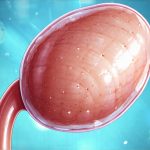Cystitis, commonly understood as a urinary tract infection (UTI), is an uncomfortable condition affecting millions annually. The term broadly refers to inflammation of the bladder, most often caused by bacterial infection, but can also stem from other factors like irritation or allergic reactions. While severe cases undoubtedly require medical intervention and prescription antibiotics, many individuals experience mild cystitis symptoms that prompt the question: Can I effectively manage this without a trip to the doctor? It’s crucial to approach this topic with caution and self-awareness, understanding when home remedies are appropriate and when professional medical attention is essential. This article will explore the possibilities of treating mild cystitis symptoms at home, emphasizing safety, recognizing red flags, and promoting informed decision-making regarding your health.
The severity of cystitis varies significantly. Mild cases typically involve discomfort like a burning sensation during urination (dysuria), frequent urges to urinate even when little urine is passed, and a general feeling of pressure in the lower abdomen. More severe infections can escalate to include back pain (potentially indicating kidney involvement), fever, nausea, vomiting, and blood in the urine – all symptoms demanding immediate medical attention. It’s this distinction between mild discomfort and potentially serious illness that dictates whether self-management is appropriate. This article focuses specifically on strategies for addressing mild cystitis symptoms and should not be interpreted as a replacement for professional medical advice. Remember, self-treating can delay proper diagnosis and treatment if the underlying issue is more complex than initially perceived.
Understanding Mild Cystitis & Self-Care Options
Mild cystitis often presents itself as an irritating but manageable discomfort. It’s important to understand that even “mild” infections require attention – ignoring symptoms won’t make them disappear, and can potentially allow the infection to worsen or spread. The good news is many self-care strategies can alleviate symptoms and support your body’s natural healing processes. These methods are largely focused on flushing out bacteria, reducing inflammation, and providing symptomatic relief. However, it’s vital to accurately assess your symptoms; if there’s any doubt about the mild nature of your condition, seeking medical advice is always the best course of action.
The core principle behind many self-care approaches for mild cystitis revolves around hydration. Drinking copious amounts of water helps flush bacteria from the urinary tract. Aim for at least 8 glasses (around 2 liters) of water daily – even more if you can tolerate it. Cranberry juice, long touted as a remedy, has shown limited evidence of preventing bacterial adhesion to the bladder wall, but its effectiveness is debated and should not be relied upon as a primary treatment. Importantly, avoid sugary drinks, caffeine, and alcohol, as these can irritate the bladder further. Additionally, prioritizing rest allows your body to dedicate energy towards fighting off infection.
Beyond hydration, dietary adjustments can also play a role in symptom management. Some individuals find relief by avoiding spicy foods, citrus fruits, and tomatoes, which can exacerbate bladder irritation. Probiotic-rich foods like yogurt (with live cultures) or fermented vegetables may support gut health, indirectly influencing the immune system’s ability to combat infection. While these are supportive measures, they shouldn’t be considered a cure; rather, they contribute to an overall approach aimed at alleviating discomfort and promoting healing alongside other self-care strategies.
Preventing Future Episodes & When to Seek Medical Attention
Prevention is always better than cure, particularly when it comes to recurrent cystitis. Several lifestyle changes can significantly reduce your risk of developing these infections. Practicing good hygiene is paramount – wiping from front to back after using the toilet prevents bacteria from the digestive tract spreading to the urethra. Urinating immediately after sexual activity helps flush out any bacteria that may have been introduced. Choosing cotton underwear over synthetic fabrics allows for better breathability, reducing bacterial growth. Avoiding harsh soaps and douches in the genital area preserves the natural balance of flora.
However, even with diligent preventative measures, cystitis can still occur. Recognizing when self-care is insufficient and seeking medical attention is crucial. Any sign of worsening symptoms demands a doctor’s visit. These warning signs include: fever, chills, back pain, nausea or vomiting, blood in the urine, increased pain despite self-care efforts, or if symptoms persist for more than 48 hours after initiating home remedies. These could indicate a kidney infection (pyelonephritis), a far more serious condition requiring antibiotic treatment to prevent long-term kidney damage. Don’t hesitate to consult your doctor – it’s always better to be safe than sorry.
Recognizing the Root Cause & Avoiding Self-Diagnosis
Cystitis isn’t always caused by bacterial infection. Sometimes, inflammation can result from irritation due to spermicides, certain soaps or lotions, or even catheterization. This non-infectious cystitis doesn’t respond to antibiotics and requires a different approach – identifying and eliminating the irritant is key. Self-diagnosis can be incredibly misleading; what seems like mild cystitis could actually be a symptom of another underlying condition. Therefore, if you’re unsure about the cause of your symptoms or experience recurring episodes, professional evaluation is essential.
The Role of D-Mannose & Other Supplements
D-mannose is a naturally occurring sugar found in fruits that has gained popularity as a natural remedy for UTIs. It works by preventing E. coli bacteria (the most common cause of cystitis) from adhering to the bladder wall, allowing them to be flushed out during urination. While some studies suggest D-mannose can be effective in preventing recurrent infections, more research is needed and it’s not a substitute for antibiotics when an active infection is present. Always discuss supplement use with your doctor, as they can interact with other medications or have unintended side effects.
Understanding Antibiotic Resistance & Responsible Use
Overuse of antibiotics contributes to the growing problem of antibiotic resistance, making infections harder to treat in the future. This underscores the importance of only taking antibiotics when absolutely necessary and prescribed by a healthcare professional. Self-treating with leftover antibiotics is strongly discouraged, as it accelerates this resistance and can lead to ineffective treatment later on. If your doctor determines that antibiotics are required for your cystitis, complete the entire course even if you start feeling better before it’s finished – stopping early can allow some bacteria to survive and develop resistance.





















